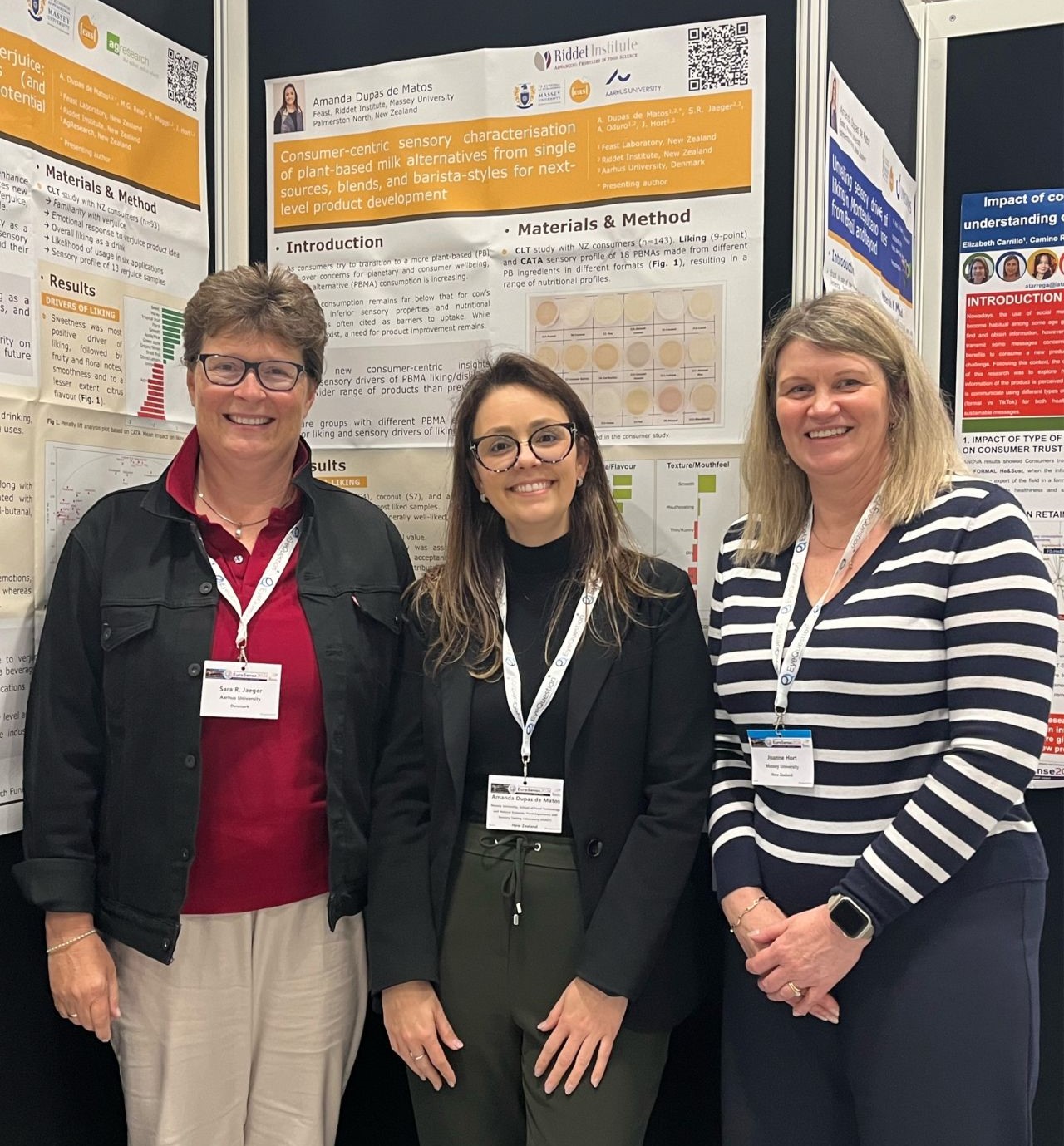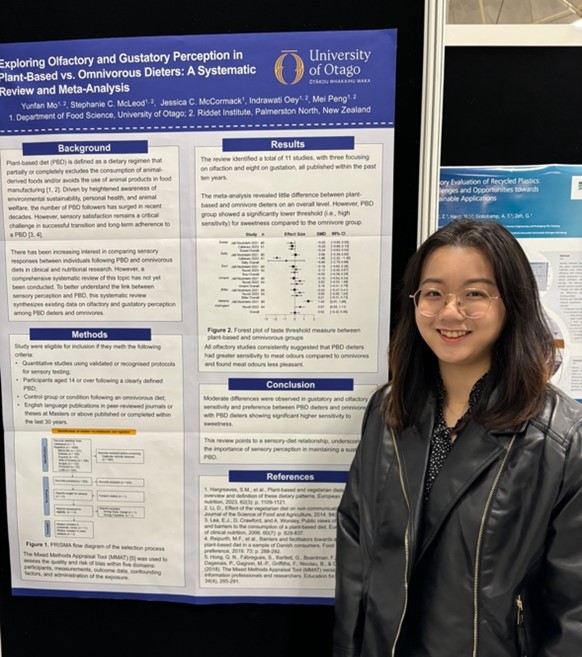16 October 2024 - All eyes were on Professor Joanne Hort as she took centre stage as one of the keynote speakers at this year’s EuroSense conference in Dublin.
Hosted by Sensory Food Network (Ireland), the 11th European Conference on Sensory and Consumer Research (EuroSense) brought together over 750 delegates from around the globe. With the theme, ‘A Sense of Global Culture,’ the conference was the perfect platform for Prof’s Hort’s keynote talk, where she shared insights on how cultural differences influence perception, cognition, and food preferences.
“Culture not only influences how we think, but also how we reason and perceive the world and this influences our responses, especially in sensory research, where food preferences and perceptions vary significantly across regions,” says Prof. Hort, while sharing key highlights from her talk.
Emphasising the challenges and opportunities in cross-cultural sensory research, Prof. Hort discussed how tricky it can be to explain what something tastes or feels like in different languages.
“For example , some languages don’t even have a word for ‘dislike,’ which makes it hard for scientists to understand what people from different places really think.”
She went on to explain that sensory descriptions aren’t always the same in different languages. For instance, Mandarin lacks a word for ‘creaminess,’ while Malay has three distinct terms for ‘bitter.’ Even how people think about taste can vary; In Korea, ‘nuttiness’ is associated with nuts, soy, and beans but in China, it’s associated with dairy, chocolate, and coffee.
Prof. Hort talked about how while our genes and what we eat can also affect how we taste things, what we learn from our culture has a stronger influence. “For example, in many Eastern cultures, people think holistically, focusing on relationships between people and objects in context, while Westerners are more analytical. These cultural differences extend to how participants use scales, with Western cultures more likely to extreme responses.”
A central takeaway from Prof. Hort’s keynote was the need for greater cultural inclusivity in sensory research. “Most methods and research have been developed in Western, Educated, Industrialised, Rich, and Democratic (WEIRD) nations,” she said, noting that these methodologies are not always applicable to non-WEIRD populations.
Reflecting on her experience, Prof. Hort noted, “EuroSense 2024 showed an exciting change in sensory research, focusing on better ways to understand individual experiences. A highlight for me was talking with industry experts about their experiences and challenges in cross-cultural research.” In addition to the keynote, Prof. Hort chaired a workshop with colleagues from various Sensory Societies to explore solutions to these global research challenges.
Several Riddet Institute researchers and PhD students, including Dr Amanda Dupas de Matos, Summer Wright, and Yunfan Mo also presented their work at EuroSense 2024.
Dr Dupas de Matos presented her research on cross-cultural differences in sensory perception between Chinese immigrants and local consumers in New Zealand, during the workshop on “Underrepresented Populations: Challenges and Opportunities for Consumer Research.” She also showcased a poster from a Riddet Institute-funded project on the sensory characteristics of plant-based milk alternatives. You can find the published paper here.
Summer Wright’s poster explored consumer perceptions of Māori food branding, which forms part of her wider thesis on Māori future foods. The research examined how elements like the use of te reo Māori and cultural symbols resonate in both local and global markets.
Yunfan Mo presented two posters. The first focused on comparing sensory perceptions between plant-based and omnivorous dieters, while the second introduced a new index designed to measure plant-based dietary habits, aimed at supporting future research on consumer preferences.
To find out more, visit this link.
Read more about the research:
https://www.sciencedirect.com/science/article/abs/pii/S0950329321001828
https://www.sciencedirect.com/science/article/abs/pii/S0958694620302715
https://www.sciencedirect.com/science/article/pii/S0950329324002015?via%3Dihub



Picture 1: Dr Amanda Dupas de Matos at the “Underrepresented Populations: Challenges and Opportunities for Consumer Research" workshop
Picture 2: From left to right - Professor Sara Jaeger, Dr Amanda Dupas de Matos, Professor Joanne Hort
Picture 3: Yunfan Mo presenting her poster at EuroSense